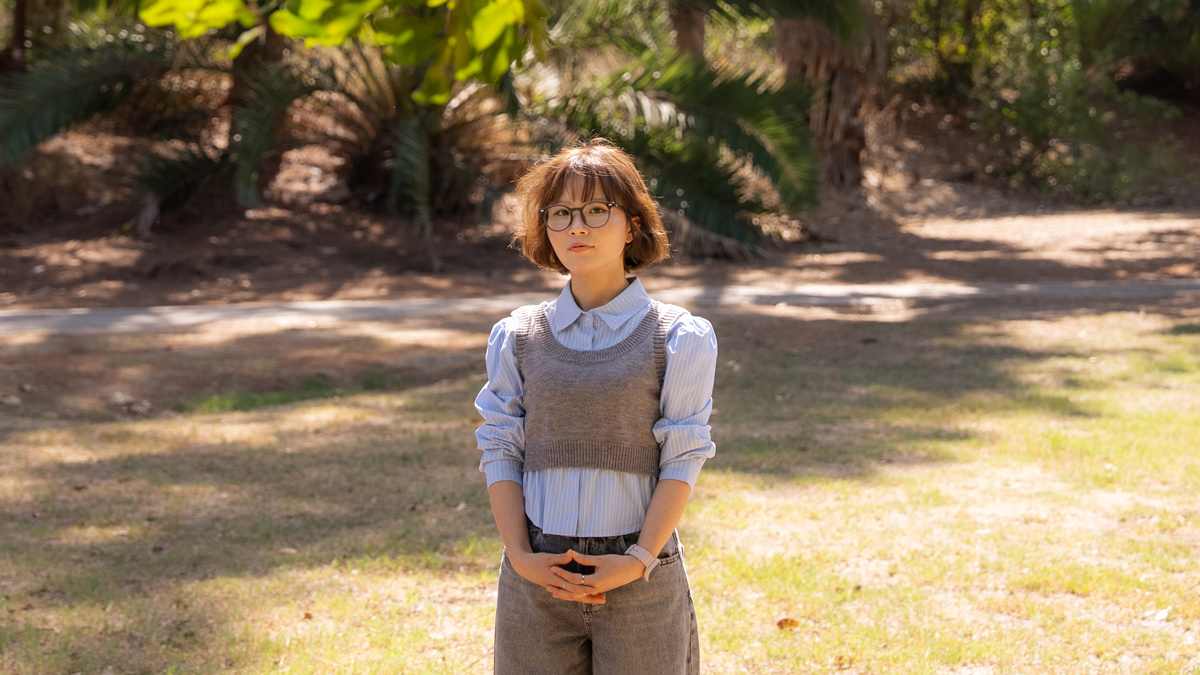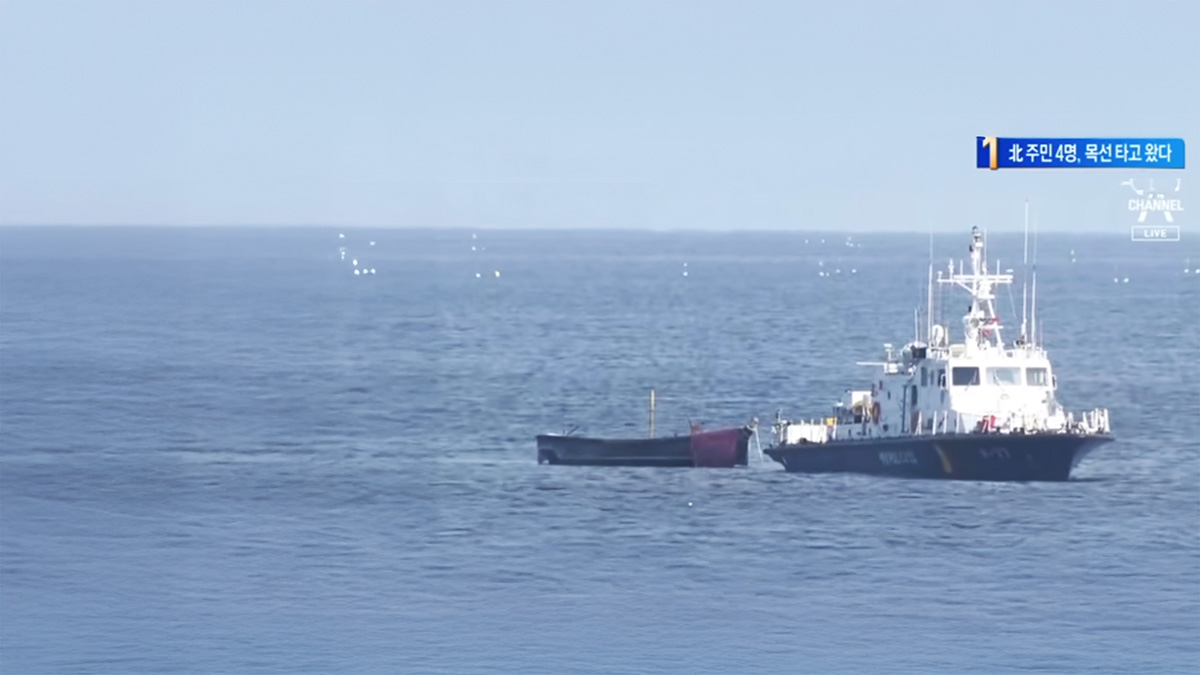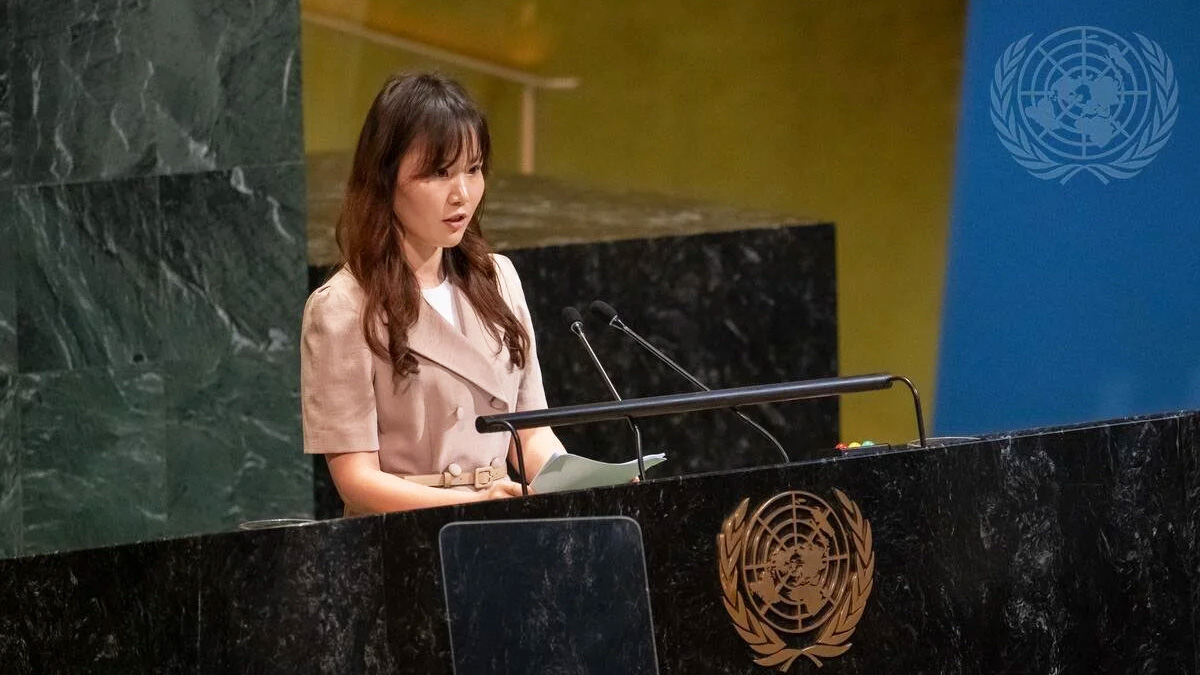One Day with the North Korean People | LiNK Summit 2023
After five years, LiNK Summit made its return on June 3rd, 2023! Over 200 Allies, North Korean advocates, fellow activists, and global LiNK staff gathered to spend One Day with the North Korean People in Long Beach, CA. We had supporters who drove hundreds of miles and flew in from across the US, bringing friends and family to join the movement.
Working on this issue can often feel isolating. Summit was a much-needed, powerful reminder that so many incredible people are committed to seeing a free North Korea in our lifetime. Through the course of a day, attendees had the opportunity to hear directly from and collaborate with North Koreans through different breakout sessions and experiences.

The Jangmadang Experience
Perhaps the highlight of this year’s Summit was The Jangmadang Experience – a collection of interactive booths and installations inspired by North Korea’s grassroots markets. Attendees could see smuggled goods, try North Korean food, pick up swag, and find ways to take action.

The “Taste of North Korea” food booth was a favorite among guests. Our North Korea-born staff were able to source authentic North Korean cookies and candy, as well as corn flour, which they used to prepare sweet corn rice cakes at the event.
People returned for seconds, then thirds. Our North Korean friends were shocked by the familiar tastes, and reminisced about the last time they had these snacks in North Korea. It was so heartwarming to see how food connected past and present, and created a new experience for everyone.

“Under the Same Sky” was a collaborative installation inspired by Joseph Kim’s memoir and the colorful prayer ribbons at Imjingak Park near the border of North & South Korea. When Joseph Kim thinks about his sister, whom he hasn’t seen since his escape, he says:
“Right now, we only share the stars. But I can look up at night and see that you are under the same sky. That will have to be enough until I find you.”
Attendees were asked to share their own messages of hope and tie them to the wall. As the day passed, it was so encouraging to see the number of ribbons grow- a reminder that we’re all under the same sky, and one day every North Korean will be free.

Another popular destination was “Past Lives,” a collection of smuggled goods and mementos from North Korea. Each of the objects- North Korean money, propaganda posters and pins, a razor blade, a floral dress, and more- held powerful stories and memories from the past lives of our North Korean friends.

As guests perused the rest of the booths, they could write postcards inviting people to become Allies, record a message of encouragement to our North Korean friends, marvel at photos from inside North Korea, and more. It was a vibrant and exciting part of the day, emulating the dynamism of the Jangmadangs in North Korea!
The Red Box Live
Inspired by our popular YouTube series, The Red Box, we created an offline opportunity to ask our North Korean friends anything about life in the most closed country in the world. Harry, Joy, and Sunghee shared their personal stories while candidly responding to audience questions about everything from dating in North Korea to experiences with discrimination in South Korea.
“I learned that every North Korean refugee has their own unique story, and the freedom they enjoy now is something that all 25 million North Koreans deserve.”
– Summit attendee

Imagining the Future of North Korea
We can’t know what path North Korea will take, but we do know that irreversible change is already happening and it's being driven by the people. In this panel we had North Korean activist, Seohyun Lee; expert on North Korea’s technology and media environment, Nat Kretchun; and LiNK’s South Korea Country Director, Sokeel Park, lead a discussion around imagining the future of North Korea and how we can support change.
Increasing the North Korean people’s access to outside information is one of our biggest opportunities to accelerate change on the ground. This session provided insight into the world’s most closed off country and LiNK’s current work in the area of information dissemination.

Allies Hackathon
The Allies Hackathon was a nod to the grassroots origins of LiNK, and how supporter-led LiNK Teams continue to be at the forefront of this movement. At this interactive session, participants teamed up to brainstorm how we can bring more attention to this issue, drawing from other parts of the day. The goal was to equip and empower attendees to take the momentum from Summit back to their communities!
“Jihyun and Esther brought the energy for the Allies Hackathon! I thought the prompts and how we broke into different groups was great, and it was fun to hear everyone’s ideas. I plan to stay in touch with my little group and hopefully we can encourage each other to stay active in our support for this issue.”
– Summit attendee

North Korean Agents of Change
North Korean defectors have incredible potential to impact this issue, from both inside the country and as they resettle in freedom. In this session, LiNK’s CEO, Hannah Song, led a conversation with North Korean advocate, Daehyeon Park, and a visionary North Korean entrepreneur who are supporting their communities, empowering others, and leading this movement as agents of change.
“Daehyeon was asked ‘What would it take for CHANGE - the big change in North Korea, that we all want to see.’ He was very quick to respond that LiNK currently has about 30 employees. What would it take for them to have 300 employees, 1000 employees? I was SO STRUCK at his faith in LiNK, that THIS ORGANIZATION could make this happen! He, who has been through it all, believes that this group of workers and volunteers are enough. They are passionate enough, smart and inventive and creative enough, to open up and free his nation. I was on a high all the way home!”
– Summit attendee

Keynote Speaker: Joseph Kim
After a day of nonstop inspiration and life-changing conversations, everyone gathered to hear from Joseph Kim, a North Korean defector, advocate, and the Associate & Expert-in-Residence, Freedom and Democracy at the Bush Center.
In 2013, Joseph delivered a TED Talk on the importance of hope and published a memoir, “Under the Same Sky.” At Summit, he revisited the power of choosing to have hope for this issue.
“It’s important to remember that North Korea is a land with darkness, not a land of darkness. There is hope for the future, and I have chosen to live my life believing in that hope.”

Finally, LiNK’s CEO, Hannah Song, wrapped up the day with a few parting words on what lies ahead.
“I know that North Korea can seem like this unchanging issue, one that definitely feels hopeless at times. In those brief moments of despair, I think about how hard some of our North Korean friends fought for their freedom…. I’m reminded that it is a privilege for us to do this work, because that means there is still something that we can do.”
At the end of the day, our excitement and confidence in the future was renewed. Each and every one of us has the ability to be a force for change. As the North Korean people strive towards their freedom, their hope for the future should galvanize us all.
We’re already looking forward to the next LiNK Summit! From all of us on the LiNK team - thank you to everyone who made this day one to remember.

A North Korean Refugee’s Daring Escape By Boat | Gyuri Kang’s Story
Escaping from inside North Korea remains almost impossible today. Borders remain sealed by the legacy of pandemic-era restrictions, while surveillance in China continues to intensify. But in 2023, a group of North Koreans crossed into South Korean waters on a small fishing boat—a rare and extraordinary way to reach freedom. Abroad the vessel was 22-year-old Gyuri Kang with her mother and aunt.

You were never supposed to know my name, see my face, or hear my story. Because I was one of 26 million lives hidden inside North Korea.
I was born in the North Korean capital, Pyongyang. The first time the government decided my future without my consent, I was only a child. My family was exiled to a rural fishing village because of my grandmother’s religion.
In the system we were living in, not even your beliefs or thoughts are truly your own.
On my way to school, youth league officers would inspect my clothes and belongings, punishing me for even a hairpin or a skirt that was a few centimeters too short. At school, we were taught that “we live in the most dignified nation in the world,” but outside those walls, people were collapsing from hunger in the streets.
Careless words overheard by a neighbor could turn into a knock at the door in the middle of the night. The radio played government broadcasts all day long, and searching other frequencies was a risk no one dared to take. This is how the North Korean government maintains control over people. By convincing you that survival depends on submission.

I returned to Pyongyang as an adult. I majored in table tennis at the Pyongyang University of Physical Education and imagined myself making a new life, built on talent and hard work.
But reality was nothing like what I had dreamed. I came to understand a deep, painful truth: In the end, everything was determined by how well you obeyed, not how hard you worked.
Frustration and emptiness built up until I finally decided to leave Pyongyang.
I wanted to help support my mother and aunt, so I moved to the coast to try and build a life of my own. My mother used all of her hard-earned life savings to buy me a small wooden fishing boat so I could start a business harvesting clams.
That boat was more than a way to make a living. It was a daily reminder of her sacrifice, and the depth of their love and trust in me. If the money I earned with my own hands could put even one less wrinkle on her forehead, that was enough for me.

As a boatowner, I woke up early in the mornings to prepare supplies, get the crew together, and encourage them. I inspected the condition of the boat and hired people to help fix the engine and other faulty parts. Although I couldn’t go out to sea because I’m a woman, I was responsible for ensuring the ship operated smoothly.
But the harder I worked, the more government officials came to me—demanding baskets of clams and money. They justified their demands by saying: “The Party orders it,” threatening to punish anyone who refused. Every night I agonized over how to protect my people and keep my business going, and how I should respond. In those moments, I would remember the love and devotion my mother and aunt had poured into me and it gave me strength to persevere.
To escape my reality, at night I secretly watched South Korean TV shows on a television that was smuggled in from China.
My world turned upside down. With my friends who were also watching South Korean media, we would cautiously express our dissatisfaction together while also copying the hairstyles and outfits we saw in dramas. Sometimes, we would even try to mimic South Korean words or accents when talking or texting together.
But under Kim Jong Un, punishments became much more severe. Two people I knew were executed for watching and sharing foreign media. Our lives became harder, control over young people became more intense, and our resentment began to grow.

But no matter how much they tried to repress us, frustrated young people like me continued watching forbidden content as a way to forget reality. Foreign media has quietly found its way into North Korea for decades. As I grew up, it began spreading more than ever before, through USBs passed between friends or broadcasts picked up on illegal devices.
Many defectors, like me, can remember the exact episode of a TV show, a specific South Korean song, or even a traffic report, that planted the first seeds of doubt.
Of course, dramas and movies don’t tell the whole story, but they show a life that contradicts everything we were taught. And it makes you wonder: if life is so different out there, why does it have to be this way here?
I realized it doesn’t just show people that different lives exist. It gives them the belief that their life could be different. And that belief gives people the courage to choose a different future.
The thing about information is once you learn something, you cannot unlearn it. I remember watching people on my screen speak freely, laugh openly, and pursue their dreams—things that were unimaginable in North Korea. For the first time, I wondered if everything we were taught might be wrong. That doubt led to questions, and my curiosity became too strong to ignore. Now that I had seen the truth, I could never go back to the person I was before.

Escaping North Korea cannot be explained by the simple word “leaving.” This was especially true for me because I escaped together with my mom and my aunt. They had placed their trust in me when they gave me money for that boat. And now I was placing my trust in that boat to carry us across the sea to freedom.
I planned our escape in complete secrecy.
I bought a smuggled GPS device from China, carefully traced our route, observed the currents and tides, learned the patrol schedules of the guard boats, and figured out the blind spots of the coastal guard posts. I meticulously checked the condition of the boat and quietly prepared all the food and supplies we would need. I trained my body for the wind and the waves, and my mind for the terror of being caught.
Some nights I woke up in a panic. Other times my confidence crumbled and I thought, maybe I should give up and just accept the life I have. But in those moments, I imagined what waited at the end of the journey.
I wasn’t leaving just to stay alive. I was leaving so that I could live like a human being.
On the night we left, we climbed into my boat and pushed off into the dark water. I gripped the rudder and let the current carry us south, carefully navigating around the guard posts and patrol boats who were on the water looking for people like us.

I knew what would happen if we were caught. Arrest. Endless investigations. Humiliation. Public trials. Political prison camp. And the possibility that I might lose the people I loved most in the world.
My mother and aunt were trembling with fear. I had to hide my own fear to tell them what I could only hope. We will survive. We spent the night being tossed back and forth on the East Sea. Black waves lifted our boat like a toy before smashing it down again. Every crash sent water over the sides and threatened to swallow us up.
Suddenly, a patrol ship appeared. Its lights stabbed the water, blinding us, and started coming closer and closer. It was coming for us. My chest pounded so hard I felt it might burst. I thought of the sleeping pills we had brought.
We had agreed that if capture became inevitable, we would rather take our own lives. It was a fate we preferred to execution or prison camps. As the coast guard closed in, I wondered, is it time for the pills?
But I refused to give in. We were so close. I steered away from the searchlights, surrendered the boat to the churning water, and pushed on forward.
Suddenly, the patrol vessel stopped and turned back around. They could no longer chase us. We had reached the maritime border. The sea calmed, as if it was welcoming us to freedom. And as the sun rose, we saw the outline of land.
A South Korean fisherman, hearing radio reports that North Korean patrols were in pursuit, realized we were the boat being chased. He steered his boat toward us and said, "Welcome. You are safe now."

It’s been almost two years since we arrived in South Korea.
I still remember moving into our apartment and using a showerhead for the first time, experiencing hot water flowing straight from the tap. I couldn’t believe it. That day, my mother, my aunt and I took turns showering, laughing, and saying to each other, “So this is what a human life feels like.”
For the first time in my life, I could choose my studies, my job, my clothes, my hobbies—even the way I spoke—for myself. It felt like an entirely new world. We were being reborn, leaving behind a past of silence and control for a life with dignity and a future we could choose ourselves.
My mother began studying for a professional certification. And my aunt enrolled in social welfare classes to help others. I studied hard and was recently accepted into Ewha University. I have also been active in North Korean human rights activism and I even started a YouTube channel to show the world what it looks like to start a new life in South Korea.

Hope is dangerous for the North Korean government. Millions of people live with anger and sadness, but even more live in resignation. Most do not realize their rights are being violated—they don’t know what “rights” are. I once believed it was normal for the state to control every part of our lives. I thought every country lived this way.
But the moment you realize life could be different, hope begins to take root. And once hope exists, change is no longer unimaginable.
My dream is that someday North Korea will be a place where young people choose their own paths, where no one is punished for their words, and where every person lives as the true owner of their life. While so much of North Korea’s reality is dark, change is already happening. And what sparks that change is information. A single truth from the outside world, a glimpse of what life could be, can plant a seed of doubt, or ignite a spark of hope.
That’s why I speak out. If I don’t tell my story, who will tell it for me? If I stay silent, will the death of my friends, and the suffering and starvation my family endured be forgotten?
Right now, in North Korea, there is someone just like me—sitting in a dark room, secretly watching a South Korean broadcast, quietly wondering: Could I also live like that?
I want my story to prove that this hope can become a reality. I want to stand in the middle of that change. Not just as someone who escaped to enjoy freedom, but as someone determined to one day share that freedom with all North Korean people.
Freedom is not given, but it is something we can achieve. With your support, we can write a future where all North Korean people are free.
Foreign media gave Gyuri a glimpse of the outside world—and the courage to seek freedom.
Increasing North Korean people’s access to outside information is one of the most effective levers for change in the country. And that is exactly what we’re doing at Liberty in North Korea
In partnership with North Korean defectors and engineers, LiNK develops tailor-made technology, tools, and content that help people inside the country access more information more safely. These glimpses into the wider world build people’s resilience to the regime’s propaganda, and emboldens them to imagine a different future for themselves and their country.
Help fuel work that’s directly supporting North Koreans driving change on the inside.




